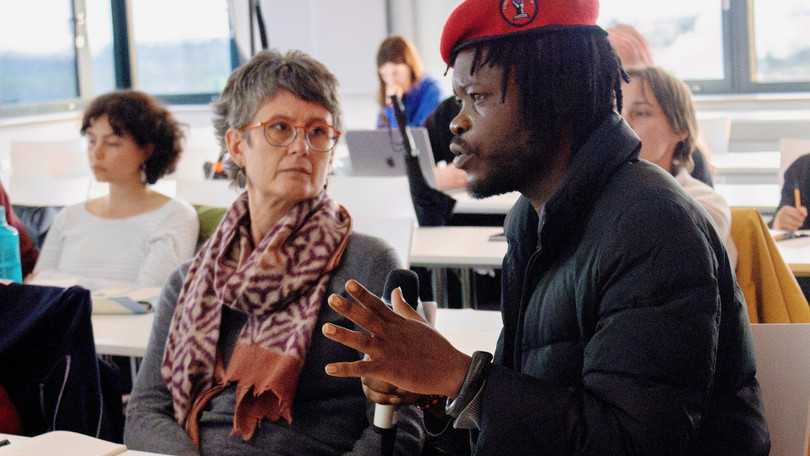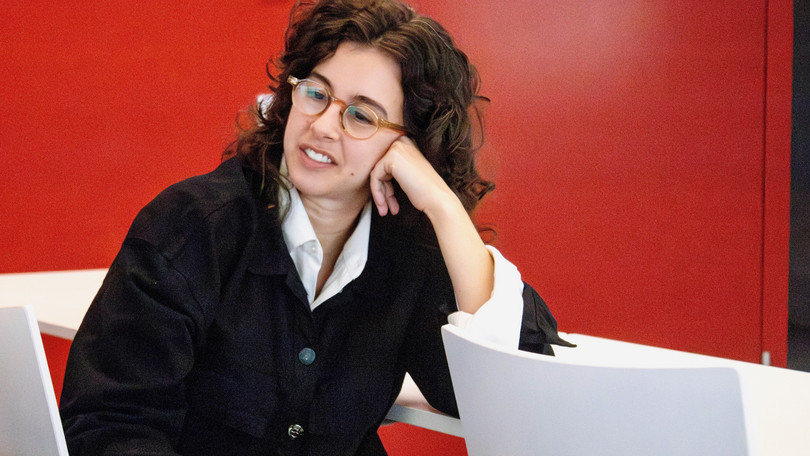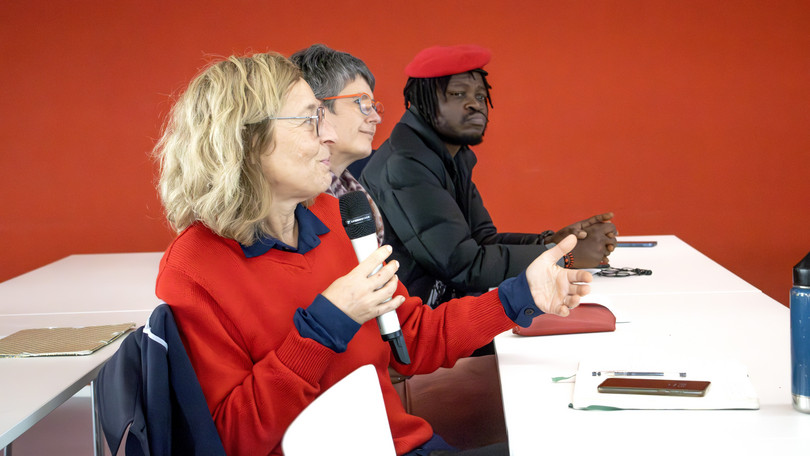Review: Wisrah C. V. da R. Celestino - From Language
2025-05-06 As part of a lecture-performance as part of Ana Druwe's Artist Fellowship on April 23rd, Wisrah C. V. da R. Celestino presented central questions of their artistic practice for discussion, which is characterised by an interdisciplinary interweaving of performance, institutional critique and poetic materiality. The performative character of the presentation itself was not merely a means to an end, but a constitutive element of an artistic way of thinking that questions the institutional, linguistic and spatial conditions of art production and reception.
The focus was on the examination of institutions as structuring forces that reproduce not only material but also epistemic orders. In her works - including Keys (2021), Belonging (2022), RENTAL/FATHER (2023) and Peso (2024) - Wisrah addressed the inherent coloniality of such structures, focusing not on the singular art object but on its relational constitution. Wisrah's approach often consists of contextualising everyday objects whose surplus meaning only becomes visible through their institutional framing. For example, the bundle of keys in Keys becomes a metaphor for a critical questioning of institutional approaches, while in Belonging or Privacy, familiar objects such as curtains or tanks are transferred into new semantic structures.
Wisrah evidently also operates with the concept of contingency to express their resistance to essentialist, site-specific attributions. The works are to be understood as open arrangements that react to specific spatial, social and affective constellations. The space becomes an active co-producer of artistic meaning, which in its difference always also carries colonial relations of violence.
In the ensuing discussion, the practice was read as a conscious gesture of refusal in the sense of a critical rejection of the demand for constant innovation within the art world. The performative shift between familial, institutional and artistic spaces raises fundamental questions about authorship, care and the economic conditions of art production. Emphasis was placed on the need to rethink forms of work in art - as relational, affective and not fully economisable.
Overall, Wisrah C. V. da R. Celestino formulates a precise plea for an institutionally conscious, poetic-political art production with their Praxis. By integrating family biography, everyday objects and performative spatial design, they create complex aesthetic arrangements that question the boundaries between private and public, artistic and economic, symbolic and material. Her works are therefore not least interventions in the epistemic structure of institutional art production.



